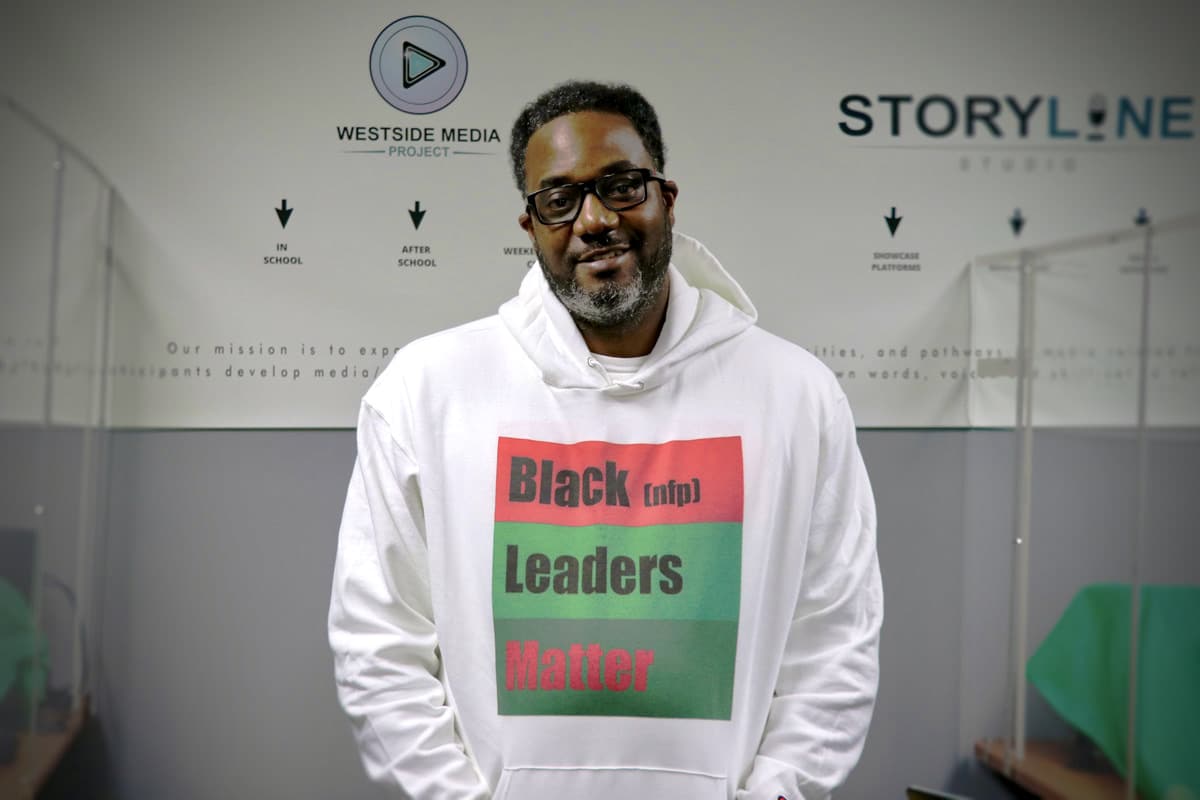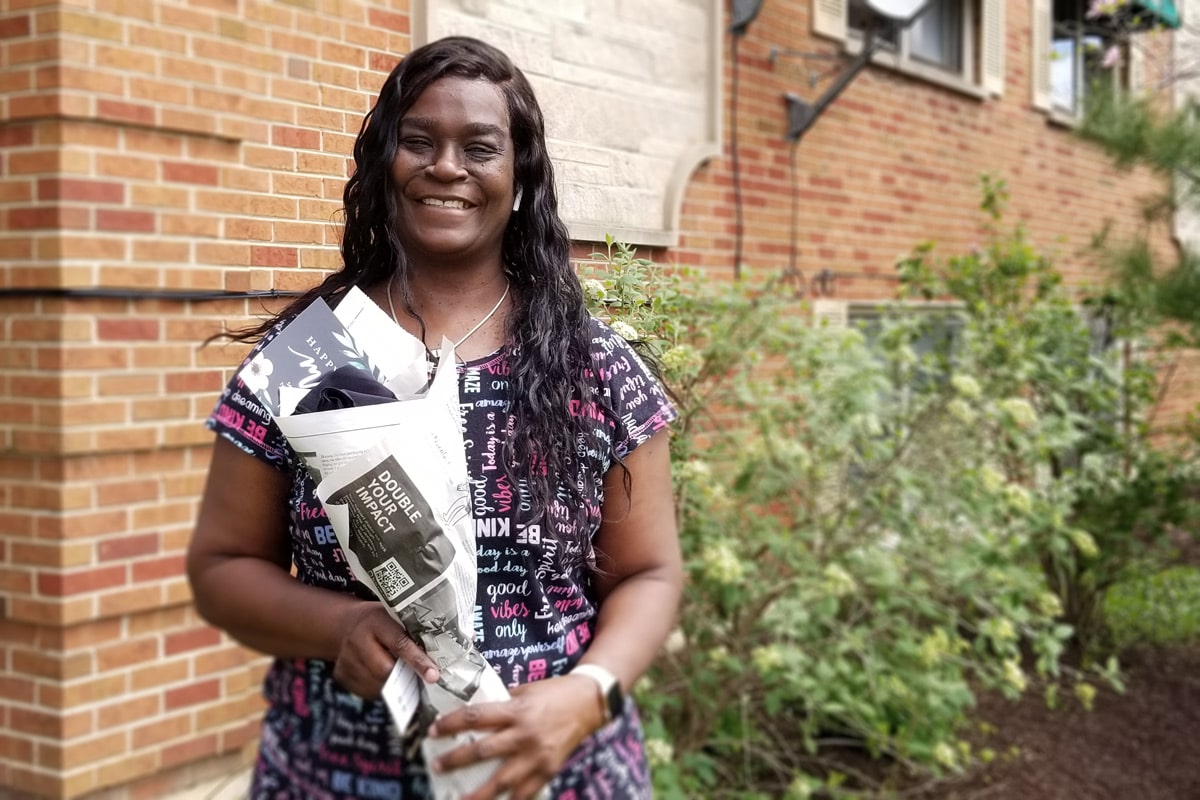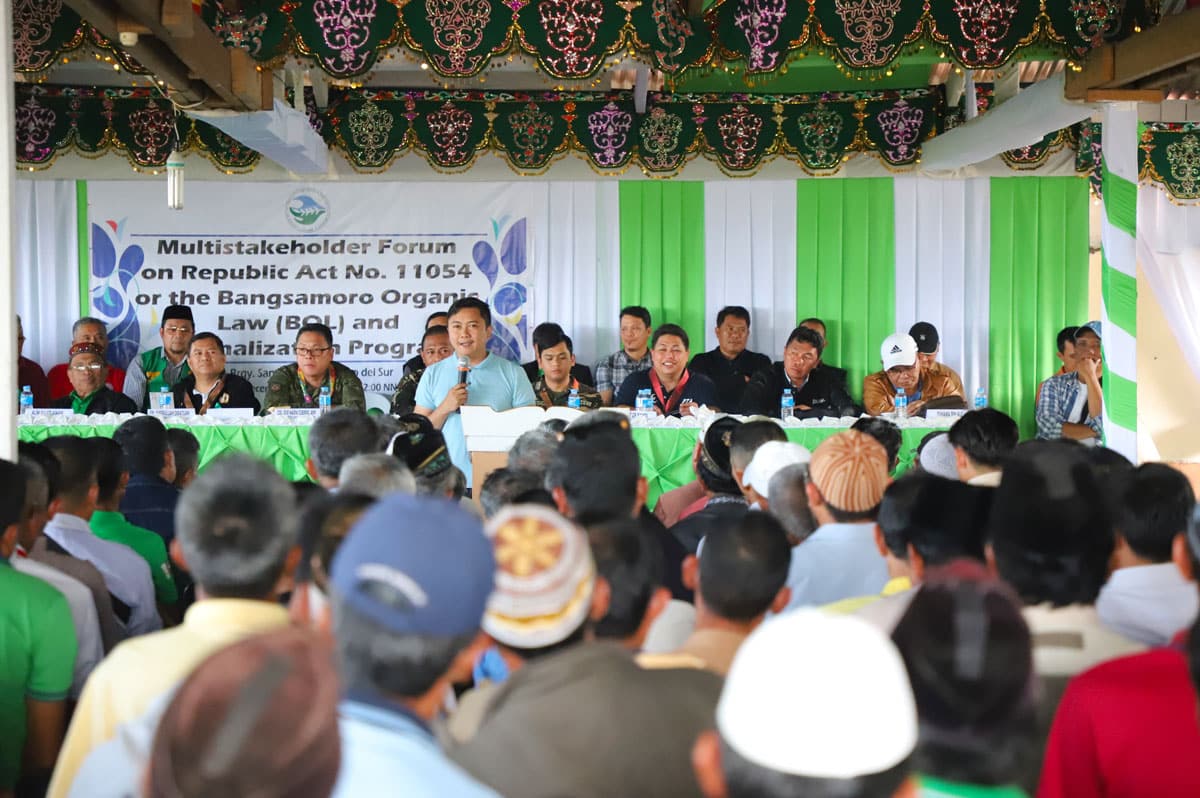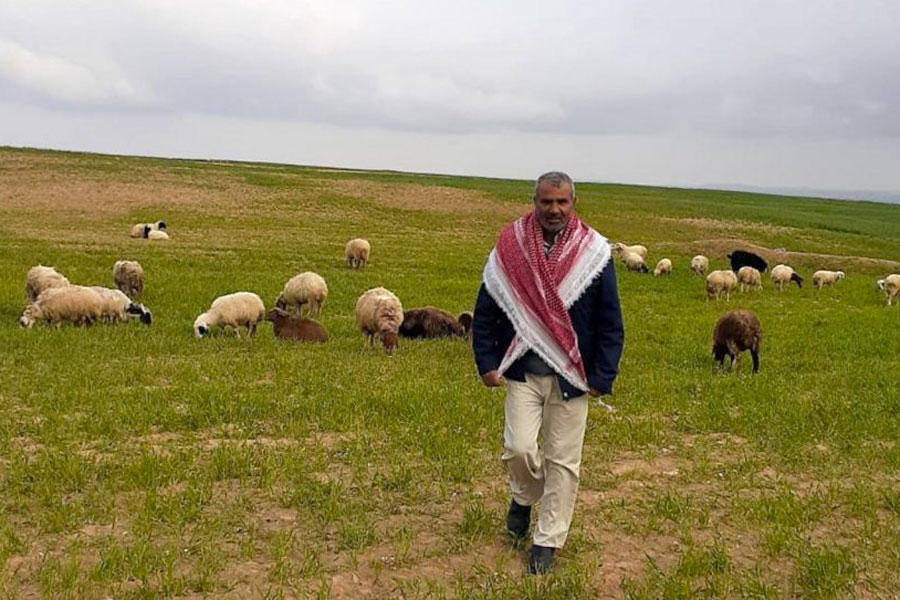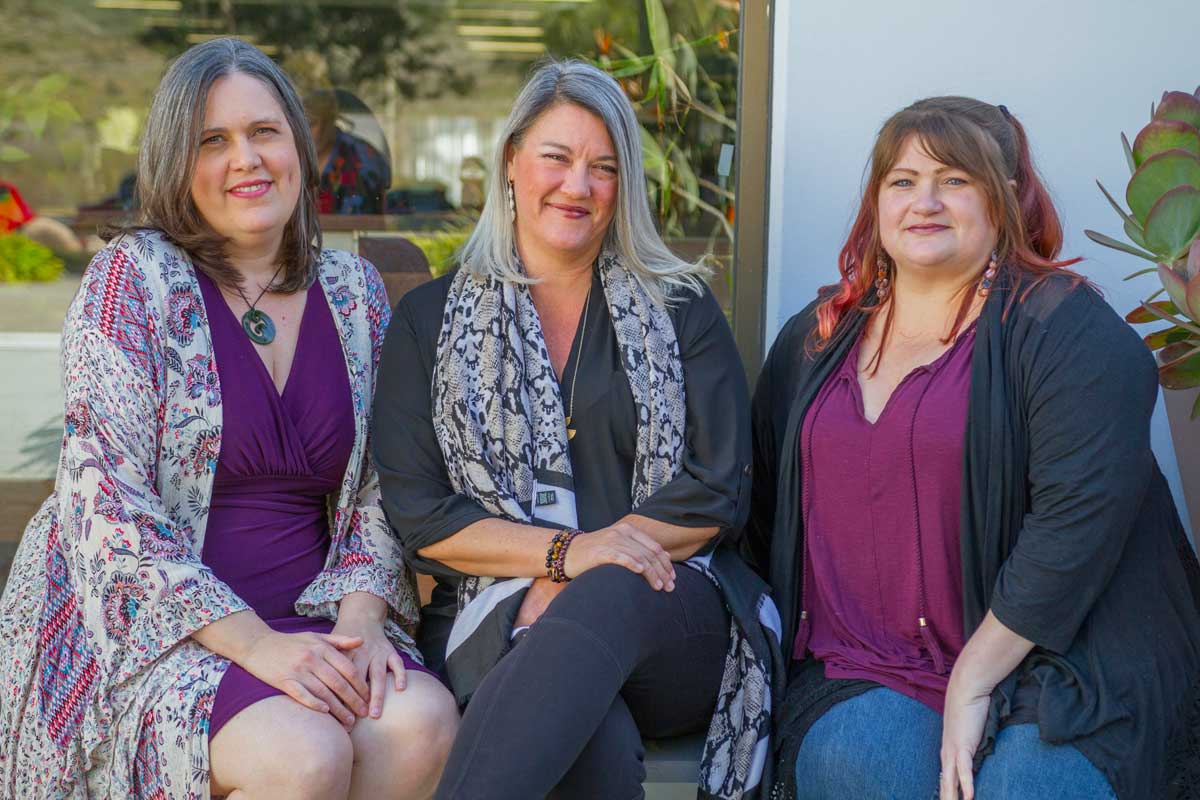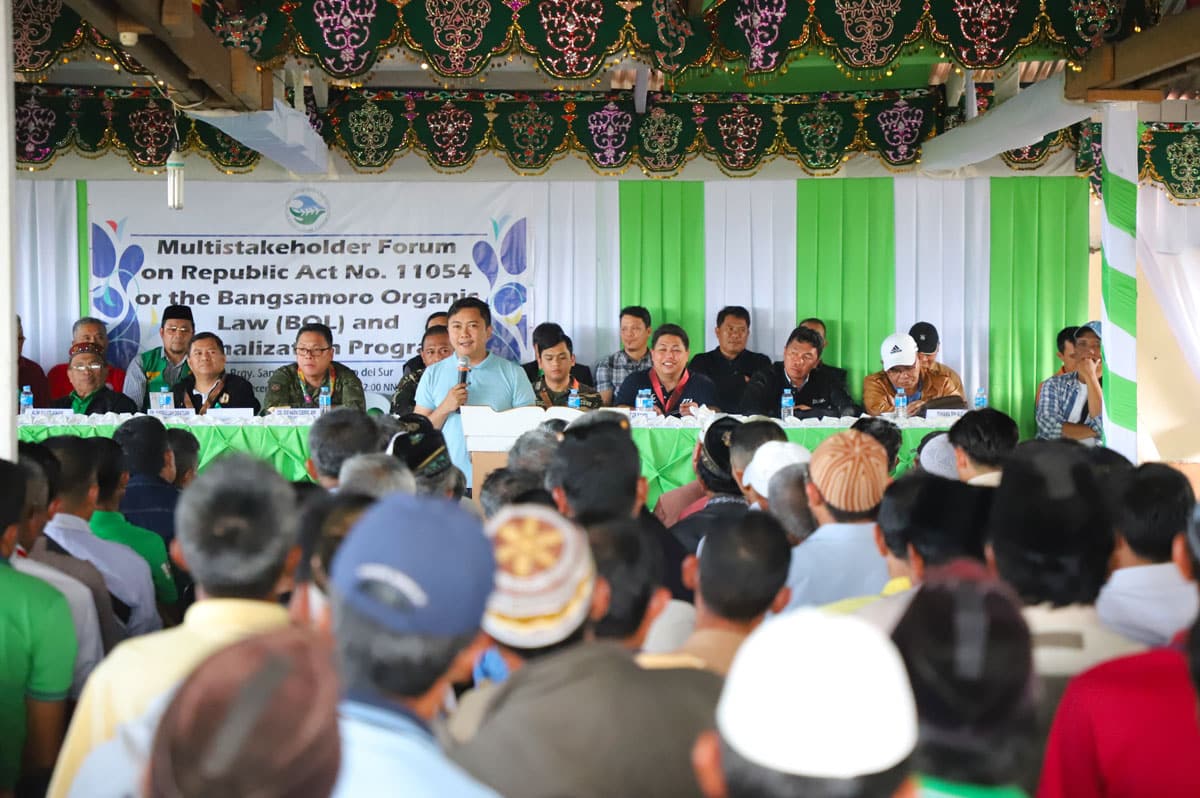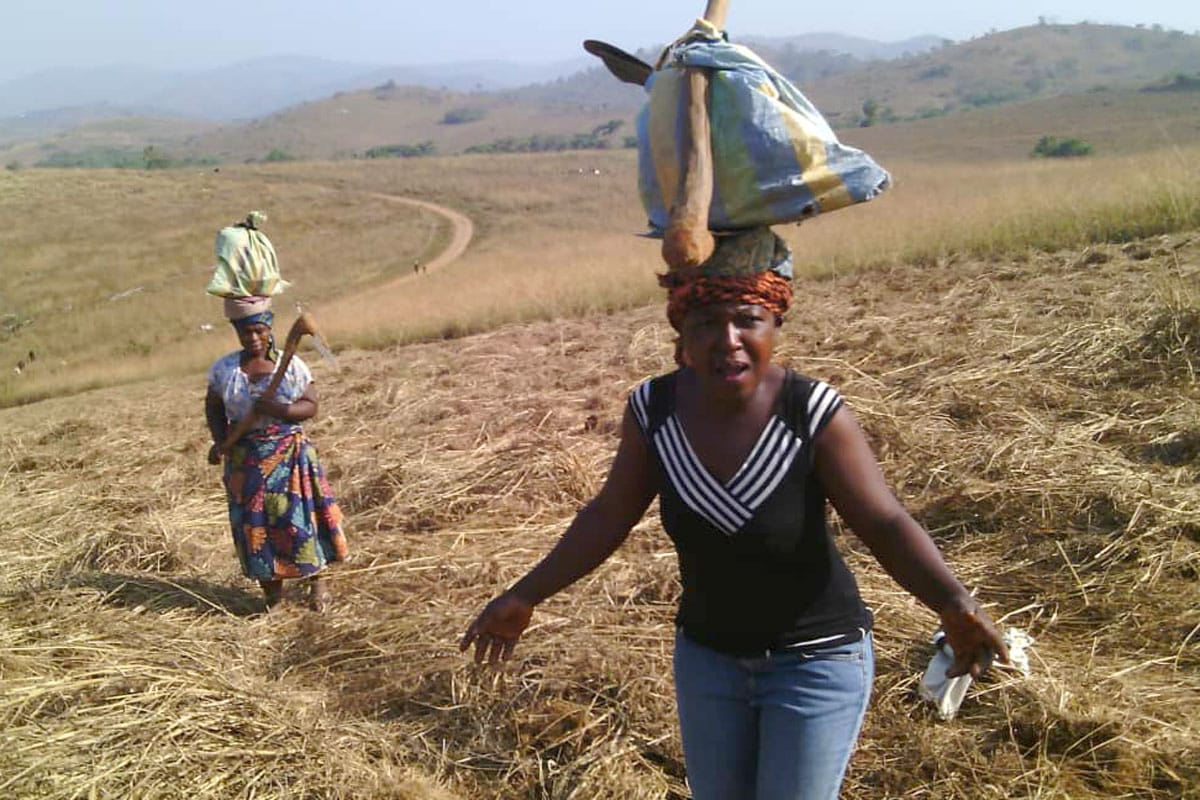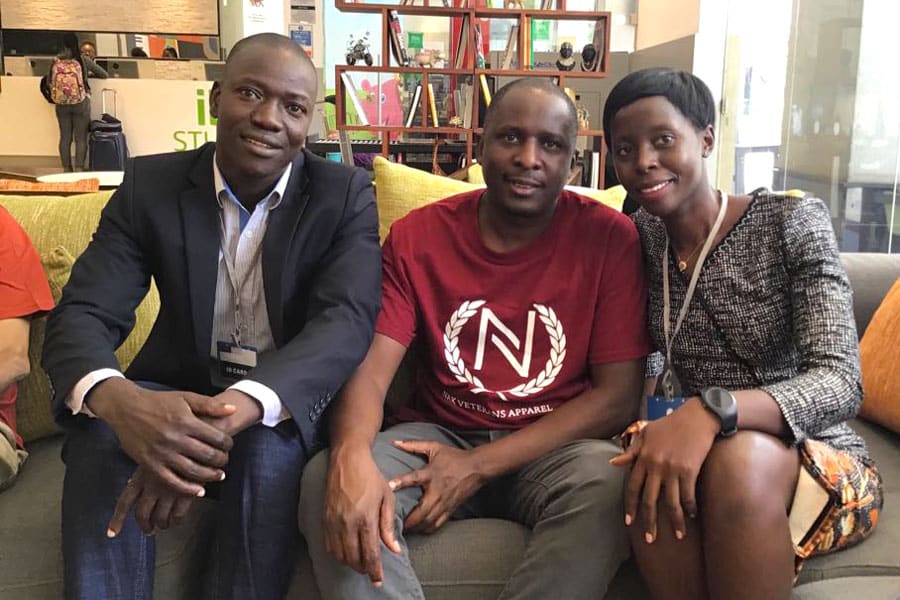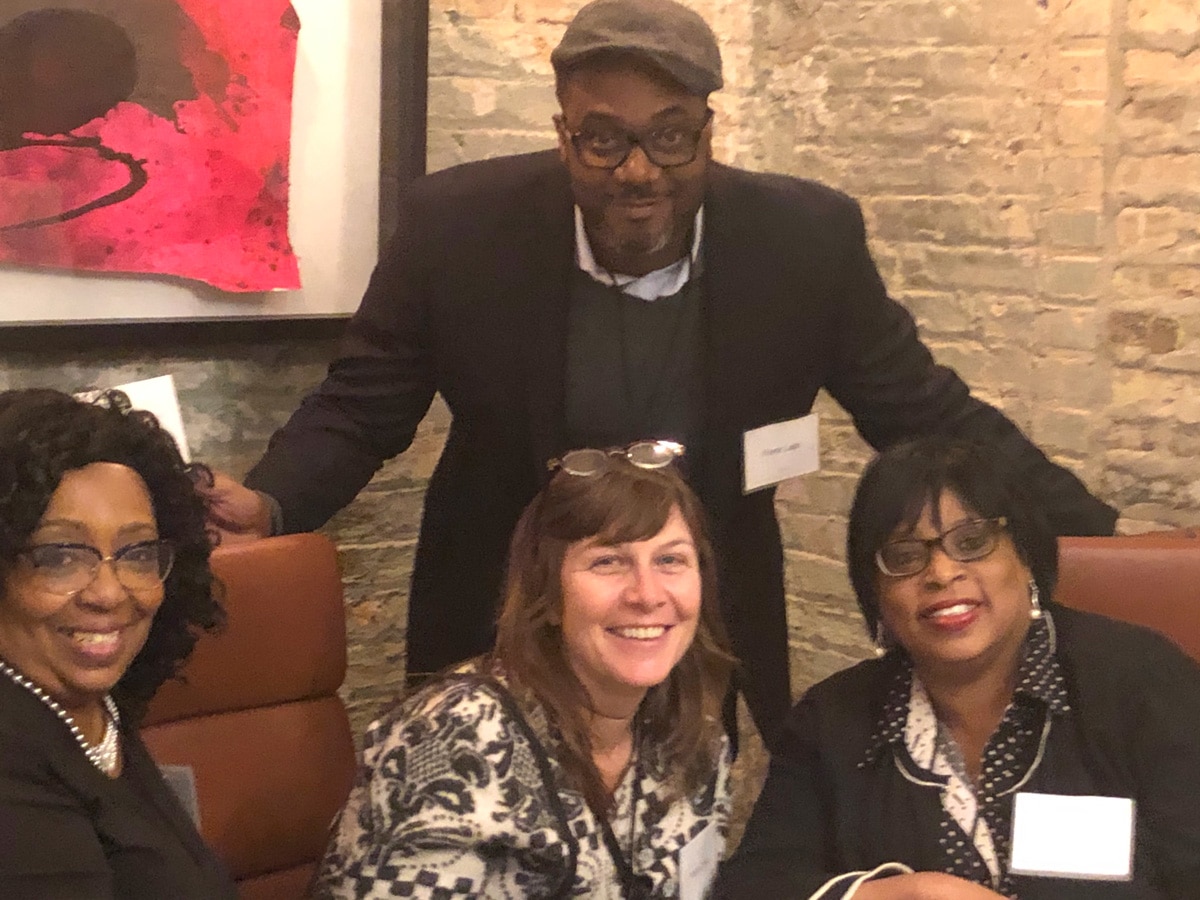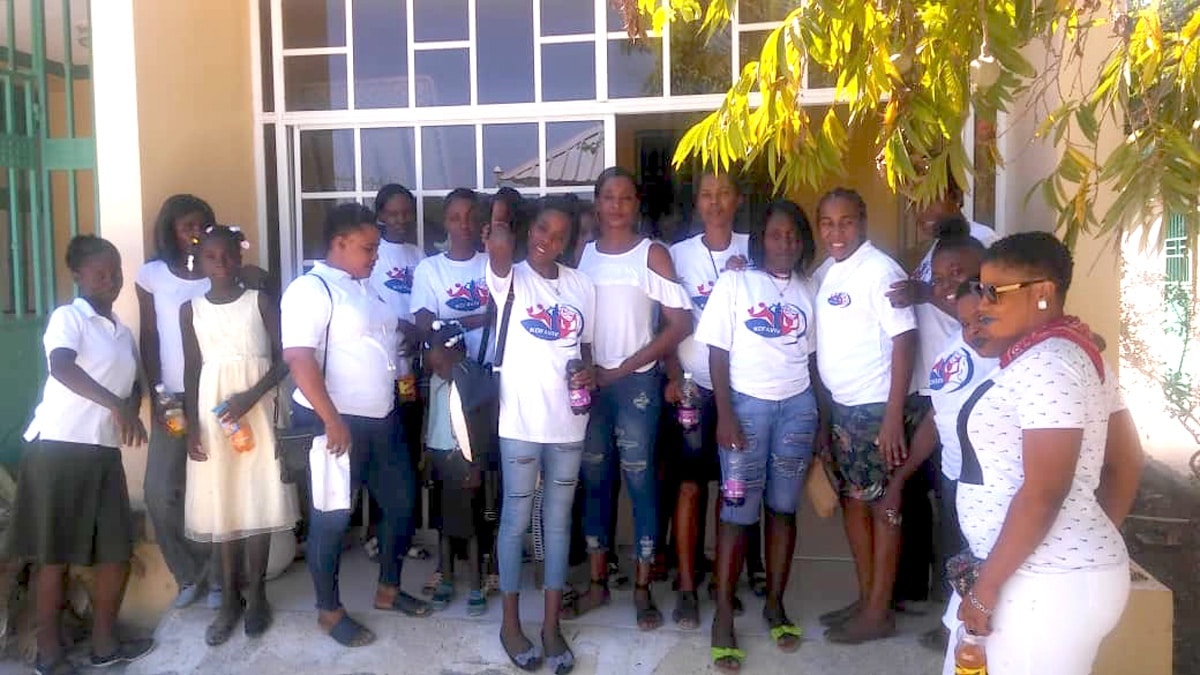Dear White Funders: I Can't Breathe Either
by Frank Latin, 2019 Chicago Peace Fellow
My name is Frank Latin and first and foremost I’m a black man. I am also the founding Executive Director of Westside Media Project, a small non-profit organization on Chicago’s West side that works to provide exposure to students (and now adults) in media/technology related fields.
I’ve been wanting to get this off my chest for a few years. Now, with the unfortunate murder of George Floyd and the ensuing worldwide protests, which have led to ongoing discussions around the topic of systemic racism, I feel this is the perfect time.
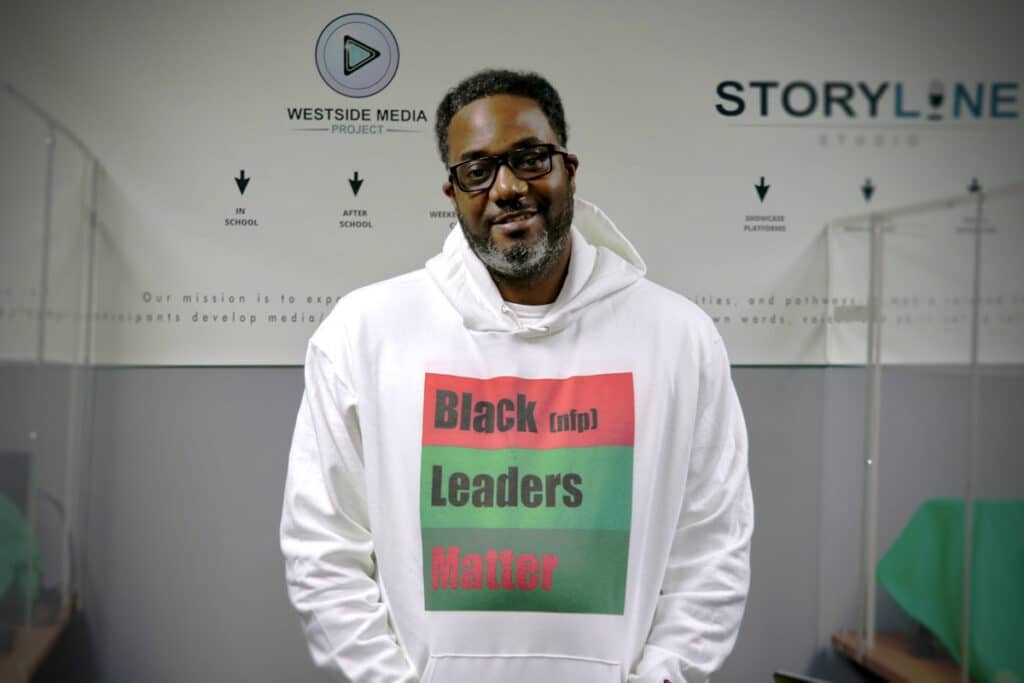
What I’ve learned in 14 years of running a non-profit is that philanthropy is one of the most racist sectors of society, competing neck and neck with the criminal justice, education and the health care systems in America. In fact, my view is that philanthropy works to bolster and prop up those other sectors by reinforcing the status quo. It is based on white society’s ‘Savior complex’ and supports white leaders at all costs, even those doing work in black and brown communities.
The perceptions I had of an uneven playing field used to upset me and have me somewhat disgruntled. However, I came to realize my perceptions were reality and have been substantiated in multiple studies, the latest published in December of 2019 by the Bridgespan Group, titled ‘Disparities in Funding for Leaders of Color Leave Impact on the Table.’
Philanthropy assumes that black and brown people living in distressed communities are part of the problem rather than part of the solution. I come to realize that as a professional, educated black man, I simply do not fit within the current model of philanthropy, primarily because I look like, walk like and talk like the residents on the west side of Chicago. The notion of a black man doing positive work in a black community without a white brain-trust or network to validate the organization is not enticing to funders. I lack what I term “white insurance” to make funders feel comfortable that their support is safe.
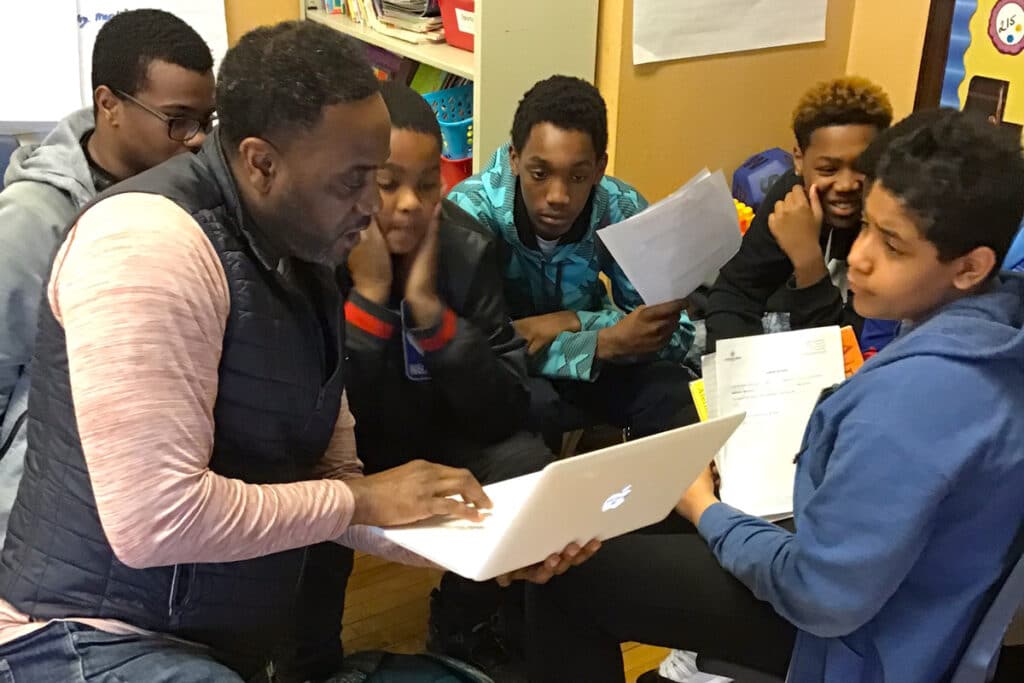
I’ll admit, when I started the organization back in 2006 I had little to no knowledge of how philanthropy worked. What I did have was a bachelor’s and a master’s degree in economics with years of experience working at a government agency so I was more than capable of learning the ropes. I decided to begin a volunteer project that eventually became something much bigger; but which I still do voluntarily.
Chicago is home to a vibrant philanthropic community and they support issues and causes not only here in the city but around the globe. However, here in the city they seldom support organizations led by leaders of color working to address those very issues, and in those instances when they do, it will rarely, if ever be at the same level shown for white led organizations doing similar work.
This has directly led to a tiered, apartheid-like structure within non-profits in Chicago where there is a huge gulf between white led organizations and those headed by leaders of color. It also perpetuates ‘culture vultures’ who seek advancement, profit and notoriety off both the misery of black and brown people as well as the structural racism that exist within philanthropy. It also encourages phony alliances in which whites who yield privilege and influence utilize people of color as fronts or tokens to gain inroads into certain communities.
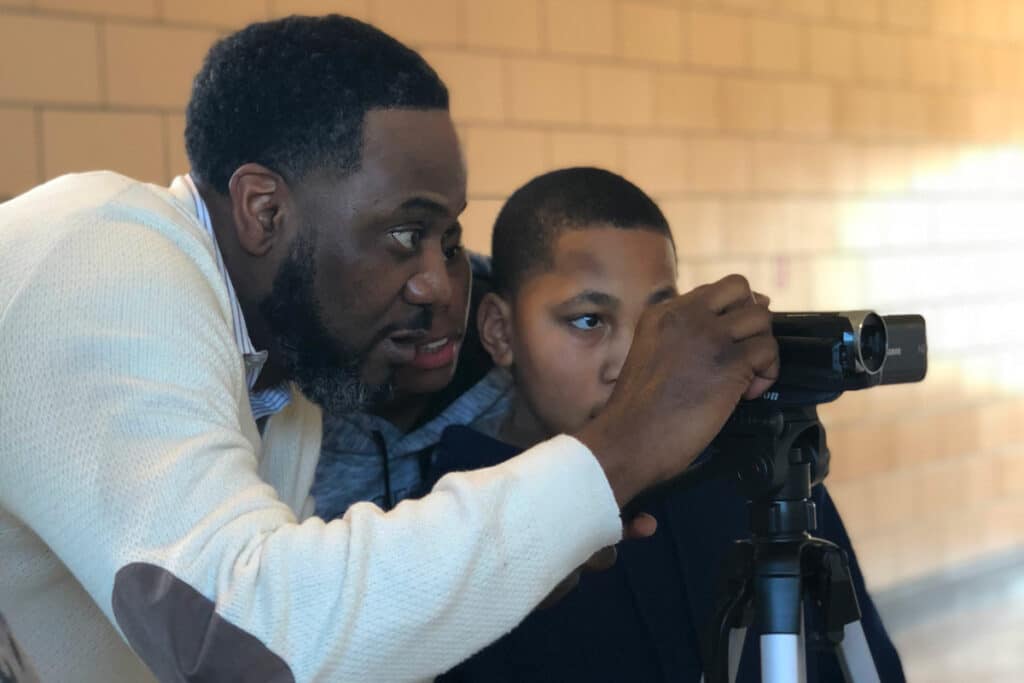
The Covid-19 pandemic has put a spotlight on the health disparities that have always existed in America. Police misconduct has been thrust back into the headlines again, and rightfully so.
Philanthropy on the other hand, is a sector that often goes unnoticed and its racist policies and practices never get splashed across the evening news or social media posts. However, the lack of funding provided to leaders of color added with the desire to prop up white leaders to do work in minority communities has devastating effects. At times, it works like a sniper, taking would-be leaders right out the field. Other times it provides a slow death, reminiscent of a choke hold or a knee to the neck not allowing organizations ran by leaders of color to service our communities.
To the philanthropic community of Chicago...I CAN’T BREATHE!!
Learn more about Chicago Peace Fellow Frank Latin's work at WestsideMediaProject.org.
Support the Mutual Aid Collaborative
Peace is Blooming in Chicago
On Sunday, May 3rd the Chicago Peace Fellows launched the Peace Flowers campaign by delivering over 75 flower bouquets to mothers that have lost children to violence.

The Peace Flowers campaign is a collective response from the Chicago Peace Fellows Mutual Aid Collaborative comprised of 38 peace organizations throughout Chicago who are working togehter to address the twin epidemics of COVID-19 and violence in Chicago.
Violence is rising in Chicago in the same south and west side neighborhoods most impacted by COVID-19 where the Peace Fellows live and work. With funding for frontline peace-building organizations often diverted to respond to the coronavirus, the Mutual Aid Collaborative is building sustainable social impact models to raise funds and create jobs.

"Peace Flowers is an innovative and easy way to fund these organizations while also investing in sustainable job creation on the south and west side of Chicago where these lovely blooms are grown."
Quilen Blackwell, Chicago Peace Fellow, Chicago Eco House

Pamela Bosley, Co-founder of Purpose Over Pain, works with mothers to connect them with each other to build a community of support.
“Many of the moms have a hard time with Mother’s Day. With the pandemic, it’s been even harder. Many mothers are reporting problems with depression and other issues related to being disconnected.”
Pamela Bosley, Chicago Peace Fellow, Purpose Over Pain
Quilen Blackwell, Owner of Southside Blooms, a social enterprise that helps youth in Englewood find opportunities in urban farming. They work to build a sense of entrepreneurship to help youth see opportunity and way out of drug trade. Quilen saw an opportunity to support Pamela’s group by providing them with beautiful bouquets in honor of Mother’s Day and to help lift their spirits. “The flower market is in huge disruption right now. 80% of flowers are imported from overseas and due to the trade issues related to the corona virus, most flowers need to come from domestic sources.” Quilen noted.

AnnaMaria Leon, Co-owner of Homan Grown, saw a collaboration in the making. She noted how this idea can be more than just a single action but, can be a part of a broader strategy to support mothers and fund projects for the Chicago Peace Fellows. She contacted her friend, Pascal Sabino, a local reporter for Block Club Chicago who wrote a powerful article about the project. The story was also featured by ABC7 in this compelling feature.
Once the funding and logistics were done, the team came together to prepare and deliver the flowers. The flowers were delivered to families across Chicago and the surrounding suburbs. The deliveries added a personal touch because they were distributed by Southside Blooms, Annamaria, and myself as Director of the Chicago Peace Fellows.
"I personally got the witness the joy and gratitude of the moms who received bouquets. It was a very moving experience to hand out flowers and cards that reminded the moms “You are not forgotten.”
Burrell Poe, Director, Chicago Peace Fellows
The deliveries were bittersweet, acknowleging the loss of family members but also because the deliveries were contact-less. No handshakes, no hugs, and at least 6ft of physical distance. Masks, gloves and hand sanitizer made this gesture different that it would have been prior to COVID-19. However, it made it all the more important because, people are suffering on top of the suffering that has already befallen their lives.
"Wonderful. Wonderful, it really made my day," said Elizabeth Bolden, a mother who received the bouquet.
The project has thus far raised over $5000 on GoFundMe and is entering into the next phase of it's social impact model where the public can purchase a subscription for flower delivery that also funds violence prevention work through the Chicago Peace Fellows Mutual Aid Collaborative.

Project oragnizers at Southside Blooms and Homan Grown will hire local youth to grow and arrange the flowers and donate a percent of their sales through the Peace Flowers campaign to support this network grassroots peace organizations on the West and South sides of Chicago plagued by the twin epidemics of violence and COVID-19.
"The goal is to create a long term sustainable funding stream for peace organizations in Chicago so that these groups have greater freedom at doing what they do best: making Chicago a more peaceful and beautiful place to live!"
Learn more about the Peace Flowers program at SouthSide Blooms
Progress in the Peace Negotiations in the Philippines

The Comprehensive Agreement on the Bangsamoro (CAB) signifies a great milestone of peace negotiations over decades of talks in the Bangsamoro region in southern part of the Philippines. It is significantly the compilation and sum total of all the agreements, declarations, joint statements, principles and mechanisms reached and agreed upon between the government and the Moro Islamic Liberation Front (MILF) from the start of the peace talks in 1997 up to March 2014.

The principles of the negotiation recognized the justness and legitimacy of the cause of over 3,256,140 Bangsamoro people, their aspiration for the meaningful autonomy through a democratic process, the aim of finding a solution to the Bangsamoro question with honor, justice and dignity and the aim to end the fighting between the government and the MILF. The Bangsamoro Autonomous Region seeks to replace the Autonomous Region in Muslim Mindanao (ARMM) with a political entity that shall possess broader powers to address the decades-long aspiration of the Moro people for meaningful self-rule over their ancestral homeland, and that is where the Bangsamoro government now.
The Bangsamoro Organic Law realized another step to continue the infrastructure of peace process as stated in the CAB. This is to put in place and frontline the clear roadmap that will provide direction to transitional justice and reconciliation measures for the Bangsamoro struggle. It serves as mark of the commitment for peace as it proposes conflict transformation mechanisms on the ground.

The existence of normalization bodies in the CAB ensures human security and helps build a society that is committed to basic human rights where individuals are free from fear of violence and long held traditions and values. Under of which is the Joint Normalization Committee (JNC) which undertakes the process of normalization, Joint Peace and Security Committee (JPSC) that develops policies and operational guidelines for the effective partnership of the JPSTs and Joint Peace and Security Teams (JPSTs) as working for the maintenance of peace and order and the stability of the areas mutually identified by the GPH ( refers to Government of the Philippines) and the MILF. On the other hand, Independent Decommissioning Body (IDB) is mandated to oversee the process of decommissioning of the MILF forces and weapons.
The socio-economic programs were intensified on development efforts for rehabilitation, capacity building initiatives, reconstruction and institutionalizing programs to internally displaced persons (IDPs), and poverty-stricken communities. The Joint Task Force for Decommissioned Combatants and Their Communities (TFDCC) was established also to assist the panel to identify and implement socio-economic priorities and development projects for decommissioned MILF combatants and their communities.
The ceasefire mechanism including the Coordinating Committee on the Cessation of Hostilities (CCCH), International Monitoring Team (IMT) and Ad-Hoc Joint Action Group (AHJAG) are collaboratively working in the commitment to a general ceasefire necessitated to the ongoing peace talks and in the ironing out security issues and concerns in accordance with the security protocols agreed between the GPH and MILF. These are the on-going work and established commitment of both parties that will be reinforced its implementation.
There would be struggles in the transition period.
Lo Ivan Castillon
But, the pressing support and collaborative participation of international community to the Bangsamoro government provides significant account on the covenant established and put in place the sincerity of the government leaders to pursue it. There would be proactive and reactive measures in accompanying the transition phase, education, continuing campaign against potential bottleneck and organized working group to explore alternatives.
This would be an opportune time for the Bangsamoro leaders to serve and govern the Bangsamoro community as to ascertain their confidence and capacities on moral governance in responding to basic needs, reducing poverty, bridging social gaps, eliminating anti-social activities, improving human security, improving peace and enhancing unity within the territory.
Opportunities offer to challenge various stakeholders and sectors in government, private and civic organizations to work hand in hand in developing different conceptual issues, methodologies, analytical language and institutional practice and strategic approaches on theory and practice of moral governance in the Bangsamoro government.
The future leaders and general public are called for their active involvement in the exploration of the existing and potential linkages in support to Bangsamoro homeland. Moreover, there is a need to strengthen advocacy on peacebuilding, culture of peace, conflict transformation, active non-violence and peace process as long-term goal through series of campaigns, public consultations, fora, research and information and education campaigns among others. This will provide venue in acquiring rich knowledge, experiences and insights of diverse educational communities to benefit mutually through collaboration and solidarity among all stakeholders.
The processes are not just aiming to have the absence of war but are aiming to have a society wherein social justice prevails, economic system creates equal opportunities to all, ecological balanced establishes, respect and honor for uniqueness of one’s culture, traditions and beliefs and development of full human potentials made available.
Indeed, the CAB is the achievement of the present government that concludes the 16th congress and showcased its relevance to peace process and to the Bangsamoro government. As Bangsamoro, there are more to do, more opportunities to grab, more collaborations to link with, and more advocacies to work on towards the Bangsamoro aspirations to have shared vision (with the national government for national unity and reconciliation and within the Bangsamoro for peace and economic stability), shared leadership, good governance, improved peace and security, adequate and proper management of resources and more inclusive dividend of peace.
Responding to COVID-19 in the Bedouin Community

As a minority group within Israel, the Bedouin Community has had a long history of strife in dealings with the Israeli government. During these dire times of Covid-19 the government has failed in many areas to support Negev Bedouins through funds resources and information. As a result many families have been facing unemployment, health and communication concerns. Students who do not have computers can’t do school from home households with over ten people are having trouble with social distancing and unrecognized villages are unable to maintain a sanitized environment due to limited water.
A New Dawn in the Negev has been taking action in three areas:
- Established an emergency Covid-19 Hotline for receiving calls from those in need of urgent care and assistance;
- Proactive outreach through our call-center, managed by our staff and volunteers, to reach out to those that might feel apprehensive or afraid to cross social norms; and
- Building an online platform, still in process, that will generate opportunities to share initiatives, hold discussions and promote peer to peer volunteer ideas.
Through all these approaches we provide both structural and culturally-sensitive opportunities to express their needs and find responses based on solidarity.

[quote]A New Dawn is actively involved in the fight against Covid-19, and our work is effective because we have trust and local knowledge earned over years of experience working with vulnerable communities.[/quote]
We are more than happy to share our knowledge and experiences and coach other organizations who are facing similar situations and obstacles with social-governmental tensions. By working together, we can become stronger and more equipped for our work indivually and collectively. A New Dawn in the Negev is always seeking new connections for resource building and sharing.
A New Dawn’s biggest obstacle now is infrastructure and resources for our current endeavors. We’re working on a phone switchboard, computer tablets, hot line operating software and other activities, as well as an Internet platform via WhatsApp to build online community, and subscribing to an existing platform while adapting to the specific needs of the Bedouin company and training a limited team of operators.

We need to urgently respond to this crisis today, but we also have to rethink our work for the future.
Even before the coronavirus hit our community, our organization was often short on resources, facing neglect from the government, and having to deal with already high unemployment rates and poverty. Now the Coronavirus has given us no choice but to quadruple our efforts and prioritize our programs. We have to safeguard our infrastructure and make it adaptable to the new social norms of social distancing. Before the crisis, meeting people and engaging with them was paramount. Now, we have to apply all our work to a virtual world.
For our community as a whole, the crisis has impacted our way of life and culture. Now more than ever, cultural competency plays a role in the future of our people; we must not forget who we are.
During this time, we have grown virtually connected with our world more than ever before. Our experiences are in need of being shared to others through this heightened medium of communication. Connecting to my network of Global Fellows is critical in this time of physical isolation and the Goldin Institute is definitely one of our greatest partners. We wish to strengthen our ties with all the alumni and otherpartners to build a better future together.
READ MORE:
- https://fathomjournal.org/fighting-back-against-covid-19-in-the-bedouin-community/
- https://www.makorrishon.co.il/news/213227/
- www.b7net.co.il
- https://www.facebook.com/watch/?v=218873629470984
Veterans of Crisis, Shyne’s Survivors Swing into Action

Shyne San Diego enters day 22 of self quarantine for all team members as the day breaks with news of another rescue placed safely in a hotel, a young woman experiencing mental distress safely in a hospital, and letters clipped to the mailbox filled with emergency supplies ready to be shipped.

Here on the frontlines of human trafficking, Shyne San Diego was well positioned for the COVID-19 emergency regulation orders from the start. With central operations already running remotely, we held a community vision summit via Zoom on St. Patrick's Day. Shyne is operated by a network of survivor advisors and leaders, all of whom have experienced economic disparity, freedom restrictions, emotional abuse, physical abuse, and a lack of resources. COVID-19 exacerbates these issues outwards into our communities, but gratefully, this team knew how to respond.
Cynthia Austin, the founder of Shyne San Diego, is an inaugural GATHER Fellow, who has spent the last two years nurturing asset-based community development measures locally. Shyne had in place emergency response protocols, needs assessments, coordination platforms, and the community connections necessary to mobilize their team within hours of the mandatory quarantine. The teams use Zoom regularly to train, meet and support each other, Voxer to coordinate on the ground efforts, and shared Google Drive to track impact. Monitoring community impact is a critical step in their operations. In three weeks, trends have emerged. They are seeing very quickly an increase in needs for mental health support, work options from home, rent, cell phones, internet and basic home supplies.

In response, Shyne San Diego partnered with survivor-owned nonprofit Victory Garden Sanctuary to launch the first Survivor Advised COVID-19 Fund. Shyne's innovative, bold and candid reputation has gotten them the attention of the California District Attorney's Association, Civilization Research Initiative, and community volunteer organizations. Cynthia and her team of survivor advisors are assisting with research, funding solutions, survivor-led outreach, social media awareness campaigns, equipment for hospitals, and economic strategies to weather the months ahead.

COVID-19 impact on our global community is profound and swift. Each of us have a role in minimizing the impact of COVID-19 in our communities. Resiliency is an attribute survivors of exploitation possess that's extremely valuable in overcoming difficult times. Their ability to balance tragedy with action is crucial for making quick decisions within organizations, families, communities and personal lives. Cynthia asked her team, "What is your personal responsibility with responding to this crisis?" She then told them that one’s "respond-ability" is now measured by four areas: (1) able (2) necessary (3) practical (4) meaningful. You can do the same. Let's unite the fight against COVID-19 as a community of care.
Shyne San Diego
Women's Grassroots Leadership & Professional Development
"Ending exploitation by building a network of survivor owned & operated businesses."
Twitter @shynesandiego
Instagram @shynesandiego
The Promise and Peril of Working with Governments: A Global Gather/Chicago Peace Fellows' Roundtable
Last month, Jamal Alkirnawi and Lo Ivan Castillon led a discussion on March 16 for Global Gather and Chicago Peace Fellows entitled “The Promise and Peril of Working with Governments,” about the challenges and opportunities non-governmental organizations (NGOs) can face when seeking to partner with states, and local officials.
Both members of the inaugural Global Gather cohort from last summer, Jamal Alkirnawi leads New Dawn in the Desert, a Bedouin-Jewish organization in Negev Desert, while Lo Ivan Castillon is based in Cotabato City in the province of Maguindanao in the Philippines. Lo Ivan is a Peace Program Officer in the Office of the Presidential Adviser on the Peace Process.

At the outset of the conversation, space was created for attendees from around the world to share updates and personal feelings about the emerging, world-wide COVID-19 pandemic and its impact in their respective communities. Many were still adjusting to government-sanctioned “shelter-in-place” orders and the reality of physically distancing in crowded areas.
Jamal led the conversation with a detailed, highly informed PowerPoint presentation entitled “Head-On with the Governor.” In it, he identified three primary models of NGO engagement with governmental entities: 1) Nonprofits as supplements to government; 2) Nonprofits and government as complements; and, 3) Nonprofits and government as adversaries. While offering concrete, sometimes personal examples of the challenges and downsides of NGO-government relationships, Jamal was careful to highlight the upsides for both sides if certain frameworks principles are adhered. As he noted, NGOs may often be at odds with elected officials and government agencies over resources, influence, strategic approaches to shared challenges, but they don’t have to be. He pointed out what he sees as the “Four C’s” of NGO-Government Relations, including cooperation, complementarity, co-optation, and confrontation, with the first two being the preferred frameworks on which engagement should be built.
As a “Peace Program Officer” in the Office of the Presidential Adviser on the Peace Process, Lo Ivan is well equipped to speak from the perspective of governmental agencies’ experience with NGOs. He’s also worked closely with Global Gather Fellow Susana Anyatin on creating access to clean water in the most rural, isolated areas of the Philippines and understand the stresses on community-based efforts.
GATHER Alum Supports Community Amidst Conflict in Cameroon
By Jimmie Briggs, Director of Learnign
In the last two weeks alone, more than 8,000 Cameroonian refugees have streamed across the border into neighboring Nigeria, fleeing an increasingly high intensity conflict between the national government and English-speaking militias seeking to form a breakaway state called “Ambazonia.” For Global GATHER alumnus Alexander Gwanvalla, the deteriorating situation has placed ever greater burdens on the work of his organization, Community Green Engagement. Speaking by phone last weekend from northwest Cameroon where he lives and works, Alexander described a crisis situation with food and resources rapidly dwindling.

“Farming activities are mostly carried out in rural areas and due to the deadly clashes happening now between soldiers and militias, farmers have fled and abandoned their farms,” he explained.
“This has resulted in dire food shortages because the food sources are no longer available. There is a state of insecurity, some of our members are also fleeing the country, and we are also facing ‘lockdown’ days where we cannot leave our homes and go to work because of the danger.” -- Alexander Gwanvalla
In total, 60,000 Cameroonian refugees have left the country for Nigeria, and even to the United States.

In practical terms, constant gunfire and risk of other physical violence by one of the warring groups makes it next to impossible for Alexander and his colleagues to meet with community decision-makers and thought-leaders. During last week’s elections on February 9, separatists from the English-speaking part of the country imposed a six-day lockdown on all civilian movement and reiterated their demand that English-speaking senators and parliamentarians quit the national senate and parliament. They’ve consistently threatened the lives of individuals who engage the legislative bodies in any way.

Last December, Cameroon’s parliament granted special status to the northwest and southwest regions of the country, which are predominantly English-speaking. Despite those concessions toward autonomy, the militias have pushed back for years against perceived disenfranchisement by the country’s French-speaking majority. The struggle for independence by the insurgents has been the biggest challenge for President Paul Biya, in power for four decades, even as the country faces off against Boko Haram terrorists who’ve long ravaged the Lake Chad Basin.
Though his work with Citizens Climate Lobby has been dramatically hampered since 2017, Alexander and his community allies continue to create impact in their region, in spite of the existential challenges.
“We have continued to focus on building our community assets via consultation and this approach has been welcomed,” Alexander said.
“We usually carry out our activities during days that are calm and mostly in areas not really hit by the crisis. Normally, we take all precautions before going out. So far, we have planted trees, installed beehives, and hosted radio programs on the rights of the child at a local radio station.” -- Alexander Gwanvalla
The conscription of child soldiers by militia poses a threat to a community’s youth.
“Food, food is a biggest challenge now,” he continued, “being able to access it as the fighting goes.”
Global Fellows Meet in Kenya
By Geoffrey Waringa, Goldin Global Fellow, Kenya
On Feb 3rd, 4th and 5th, GATHER global alumni from Uganda Miss Diana Alaroker and Geoffrey Omony of Youth Leaders for Restoration and Development (YOLRED), the first organization designed and run by former child soldiers, attended an Anti-Slavery Knowledge Network workshop in Nairobi, Kenya.

During the workshop, they made time to link up with me, GATHER Global alumni from Kenya Mr. Jeff Waringa, and it was a very joyful meet-up for people who have virtually know each other for more than a year but never met physically.

The three of us had very fruitful discussions centered on the possibility of working together on a regional scale. We noted the challenges of real time communication with all GATHER fellows from the East African region due to engagements and access to online communications amongst them. However, we made a commitment to start the conversation and get something going that the rest of the East African fellows could join later.

They made arrangements for a further meeting the next day which was the Ugandans’ day of departing. They made time to meet in between other meetings and on the ride to the airport. On the last day, they visited Goldin institute’s partners Arigatou Kenya offices in Nairobi, where they also had very pleasant discussions with Dr. Dorcas Kiplagat about the YOLRED projects in Uganda. Dorcas and I also had a pleasant meeting, and I updated her on my work in Kenya and the challenges I’m facing in combating the wave of violent extremist radicalization on the Kenyan coast.

The meetings ended well and commitments were made to remain in constant communication towards further collaborations.
A Night to Remember!
By Frank Latin, Senior Advisor, Communications
For me, the Goldin Institute’s 2019 Chicago Peace Fellows graduation ceremony was an inspiring event. The ceremony marked the completion of a six-month fellowship in which myself and 18 other committed community leaders collaborated to complete an engaging, community-focused curriculum and attend other scheduled workshops. The Chicago Peace Fellow program, with the use of its GATHER platform, is designed to share new social change tools and concepts that can assist in creating safer and more peaceful communities with individuals who already working in high-need areas on the South and West sides of Chicago.

The event attracted close to 100 people, including family, friends, colleagues and civic leaders who showed up to acknowledge the collective work of the CPF graduates. The group is comprised of individuals who lead small organizations and do not allow our even smaller budgets to deter us from doing the work that our communities so desperately need.

Our budgets and our organizations are small, but our work has a huge impact in the communities we serve.
To be honest, it was a pleasant surprise to see so many people come out to honor the work of a small group of people whose work often goes unnoticed by the mainstream. The evening came full circle for me when I ran into an old colleague at the event, Susana Vasquez, who I hadn’t seen in a while. Susana volunteered to conduct our first strategic planning session over 12 years ago. The mission and vision we crafted back then has helped guide me to this point...And here we are, the Westside Media Project is now in its 14th year of engaging and empowering community residents to utilize digital media to tell their own stories.

In the end, the ceremony not only celebrated the work of the 2019 Chicago Peace Fellows, it also highlighted one of the core beliefs at the Goldin Institute that is not universally shared throughout the philanthropic community: Leaders of color who live in the communities in which they serve are more than capable of providing solutions to problems that exist in their communities.
The Goldin Institute thanks the Conant Family Foundation, the Polk Bros. Foundation, Chase Bank, the Partnership for Safe and Peaceful Communities and our generous network of champions for community driven social change for supporting the Chicago Peace Fellows
Download the Graduation Booklet to Learn More
Stand With Us In Haiti
By Malya Villard Appolon, Goldin Global Associate, Haiti
We are raising our voices on the 10th anniversary of a date Haitians will never forget – January 12, 2010 - when Haiti experienced one of the worst natural disasters in our nation’s history, an earthquake registering 7.0 on the Richter scale. In 7 seconds, thousands of lives were lost, and the survivors were left screaming in confusion and wondering at the fate of loved ones. Women were left without husbands, children without fathers or mothers.

In the days afterward, the toll rose to over 100,000 dead, countless wounded, and 1.5 million more displaced from their homes and communities. For women and girls in particular, the physical and emotional devastation never ended.
Hundreds of thousands of Haitian citizens were suddenly pushed into displacement camps with scant governmental or international aid, so that chaos and systemic violence against women resulted. We still live in daily fear of assault on our lives and well-being.
After the earthquake, I saw and experienced the violence against women lost our own homes and lived in informal tent cities that sprung up in its wake. My own house collapsed, and I personally lived in a makeshift tent in the Champ-de-Mars park, witnessing everything that happened. Before the earthquake, Champ de Mars was the largest public park in the Haitian capital, Port au Prince, and it became a tent city for the displaced.
THE COMMISSION OF WOMEN VICTIMS FOR VICTIMS (KOFAVIV) was founded before the earthquake, in 2004, with 5 women including Marie Eramithe Delva, Joseph Solange, Ruth Jean Pierre Elena Fevry, and me. We were all victims of sexual violence and massacres who decided to join forces to fight to get justice for other women as well as for their children. Because the families of the victims have never been able to get justice, we decided to fight for other women to get justice one day.
As we were experiencing all sorts of violence after the quake, we had to put in place strategies that involved men in patrolling the camps to stop the violence, developing whistleblowing methods, and establishing male-to-male accountability for prevention. We also were involved in a lot of domestic and international advocacy.
Even today, there are still people scraping by in encampments with names such as Villam Beta and Camp Tokyo. Displaced women and girls are still subject to all forms of violence: physical, sexual and economic. Sadly, we have lost many young girls without parents who have died due to the disease and violence that often accompany prostitution.
We are asking the international community to intervene in Haiti at this moment because we see what the women are experiencing is another disaster, where they cannot go to work or to the markets due to a rapid increase in criminal gangs that filled the vacuum left by the lack of a functioning government. Women are forced to stay inside with their children. There is no work, no accessible health care or education. Trapped, women and girls have died with their babies in their wombs. These gangs have taken over almost all areas in Haiti, and the most vulnerable in this situation is women.
We are doing what we can.
We are teaching women martial arts and working with trusted men who volunteer to provide safety and raise awareness. We have taken these programs to some of the hardest hit communities in Haiti: the Village de Dieu La Saline, Grand Ravine, Cité Soleil, Martissant, Bel Air, among them.
